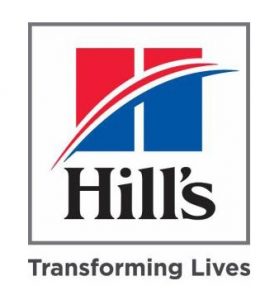october, 2022
Event Details
Nutritional Interventions for Chronic Enteropathies in the Small Animal Patient **Click Here to RSVP**
Event Details
 Nutritional Interventions for Chronic Enteropathies in the Small Animal Patient
Nutritional Interventions for Chronic Enteropathies in the Small Animal Patient
**Click Here to RSVP**
Approved for one hour California Statutory CEU
Objective:
The central theme of this presentation is that for your small animal patients, a diet trial is an appropriate and justifiable first step to treating pets with clinical signs of gastrointestinal disease including, but not limited to, vomiting, hyporexia, dysrexia, diarrhea (large or small bowel), and weight loss for two or more weeks (chronic enteropathies). The catch-all term chronic enteropathy (or idiopathic chronic enteropathy) does not describe an etiology, nor does it provide an indication of the type of treatment that is most likely to be effective for managing these clinical signs. One must rule out gastrointestinal parasites, neoplasia, infection and conditions such as kidney disease, pancreatitis, hepatic disease or gastrointestinal foreign bodies whose clinical signs may overlap with those of a chronic enteropathy. Over 50% of pets with chronic enteropathies respond to diet alone, meaning that for the majority of these pets, feeding a therapeutic diet (commercial or home-prepared) that is selected based upon their clinical signs is most appropriate. Being able to describe to your clients why this is an appropriate first step and providing them with realistic guidelines for monitoring their pet’s response to the diet trial will help engender their trust and confidence in you.
Upon completion of this attendees will be able to:
1. Define a chronic enteropathy
2. Describe to client’s why a diet trial is the most appropriate initial approach to
managing a chronic enteropathy
3. Choose a food, based upon clinical findings, most appropriate for managing a pet’s
chronic enteropathy
4. Provide clients with realistic guidelines to monitoring a pet with a chronic
enteropathy’s response to a diet trial
 Speaker:
Speaker:
Stewart Morgan, DVM, Ph.D., DAVCIM (Nutrition)
Dr. Morgan is originally from the east coast. He was born and raised in Baltimore, MD. He went to Haverford College in Pennsylvania for his Bachelors, Stony Brook University for his Ph.D. in Genetics, Cornell University for his D.V.M. and to Virginia Maryland College of Veterinary Medicine for his residency training in Comparative Veterinary Nutrition.
Dr. Morgan has both small and large animal experience. He was an Assistant Professor at Western University College of Veterinary Medicine and the former Associate Manager of Scientific Affairs (for the United States) at Hill’s Pet Nutrition.
In Dr. Morgan’s spare time he likes to compete with his dogs, Brad and Glenn, who are Brittanys. He also likes spending time with his cat “Wakshlag.” As a comparative veterinary nutritionist, Dr. Morgan is able to manage cases that respond to nutrition in both small and large animal patients. Examples of these include:
• Achieving ideal body condition in obese and overweight patients
• Managing patients of urocystolithiasis (bladder stones)
• Managing patients with kidney disease
• Managing patients with liver disease
• Managing patients with chronic enteropathies (lymphangiectasia,
lymphocytic plasmacytic enteritis, etc)
• Managing patients with food allergy
• Managing patients with orthopedic disease
• Formulating home-prepared diets for small animal pets and rations for large
animals
• Support for hospitalized patient
Sponsored by:


Time
(Monday) 6:30 pm - 9:00 pm
Organizer
LAASERoutreach@laaser.vet



No Comments